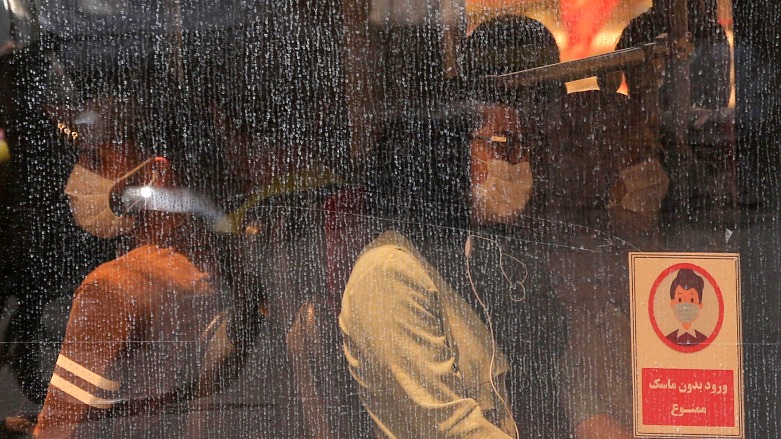Iran suspends newspaper after report questioning official COVID-19 statistics

ERBIL (Kurdistan 24) – The Iranian government shut down a newspaper on Monday, just one day after publishing claims by a public health expert suggesting that Tehran has massively underreported coronavirus cases and deaths. The health ministry immediately denied the allegations.
Starting operations in 2004 with a focus on business-related news, Jahane San'at on Sunday quoted Mohammed Reza Mahboobfar, an epidemiologist the paper said had worked on the government's anti-coronavirus taskforce.
Mahboobfar said that the "real" number of cases might be twenty times higher than figures provided by the federal health ministry, according to which there have been just over 330,000 coronavirus infections and nearly 19,000 fatalities.
He also claimed that authorities had first detected the disease a month before the official announcement in mid-February, delaying it "until after the commemorations of the anniversary of the 1979 Islamic Revolution and parliamentary elections earlier that month" had concluded, according to The Associated Press.
The expert alleged that "the administration resorted to secrecy for political and security reasons," and provided only "engineered statistics" to the public.
The state-run IRNA news agency later cited health ministry spokeswoman Sima Sadat Lari as saying that the epidemiologist's statements were incorrect and asserted that he had not been part of the government's anti-coronavirus taskforce. She also claimed that Tehran has been "transparent" in publicizing virus statistics.
Iran's official coronavirus reporting has been highly scrutinized, with experts and observers often alleging orchestrated cover-ups of actual numbers. Earlier this month, the BBC reported that the real figure is likely "nearly triple" the amounts claimed by Tehran, based on health records it said it obtained from an Iranian whistle-blower.
Related Article: Baghdad reports 2,700 new COVID-19 infections, as Iraq becomes Arab country with most deaths
In statements that shocked the Iranian public in mid-July, President Hassan Rouhani, said that the number of coronavirus cases was roughly 100 times larger than Iran's official statistics, about 25 million. He claimed, however, that the announced death rate was accurate.
According to clarifications later provided by health ministry officials, the estimate was based on research conducted in March on close to 10,000 sample individuals across roughly half of Iran's provinces.
Deputy minister Alireza Raisi said in a televised interview that the study had derived the large figure, as cited by Rouhani, from serology tests. Such examinations "are for antibodies and detect whether an individual has been exposed to any type of coronavirus, not just COVID-19," AP reported at the time.
Although Iran was the original epicenter of the disease in the Middle East, as well as the nation from where the virus spread across the region, it has now been overtaken in the number of reported daily cases by neighboring states like Iraq.
Related Article: Iraq tops Iran's daily COVID-19 cases
Iran has still had the deadliest outbreak in the Middle East, primarily due to how early the virus entered its borders due to continued dealings with China, where the disease first surfaced in late 2019. Tehran has repeatedly come under fire for its lack of comprehensive lockdown measures nations around the world have put in place to combat the spread of COVID-19.
The nation has been struggling economically, especially after successive rounds of US sanctions following Washington's withdrawal from a 2015 Iran nuclear deal in purported efforts to deter Tehran's extraterritorial activities and support for militia groups across the Middle East.
Editing by John J. Catherine
